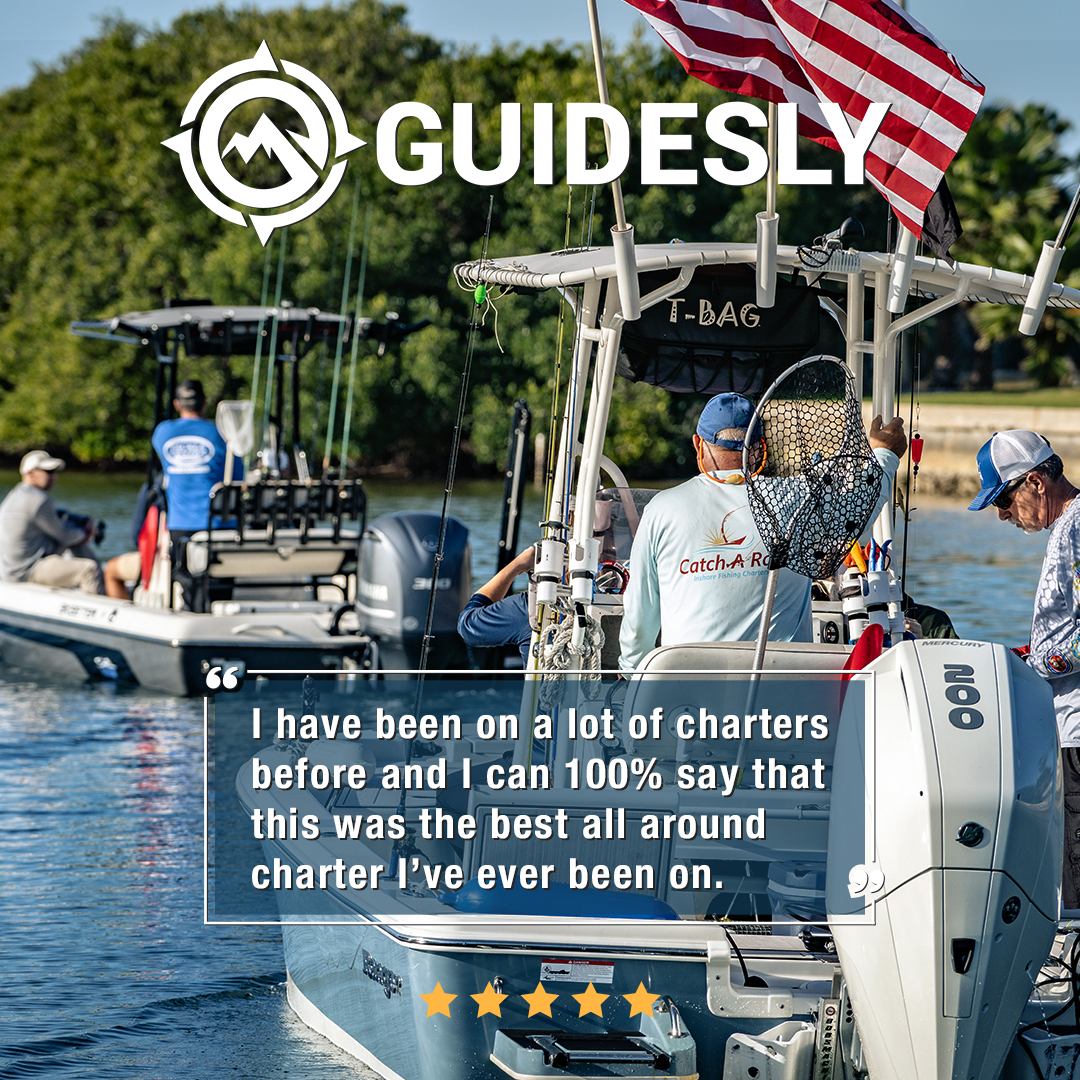The 9 Reasons Why You’re Not Catching Fish
Not having enough bites? Spending too much time out in the water but catching nothing? Here are 9 reasons why you might have some trouble fishing.
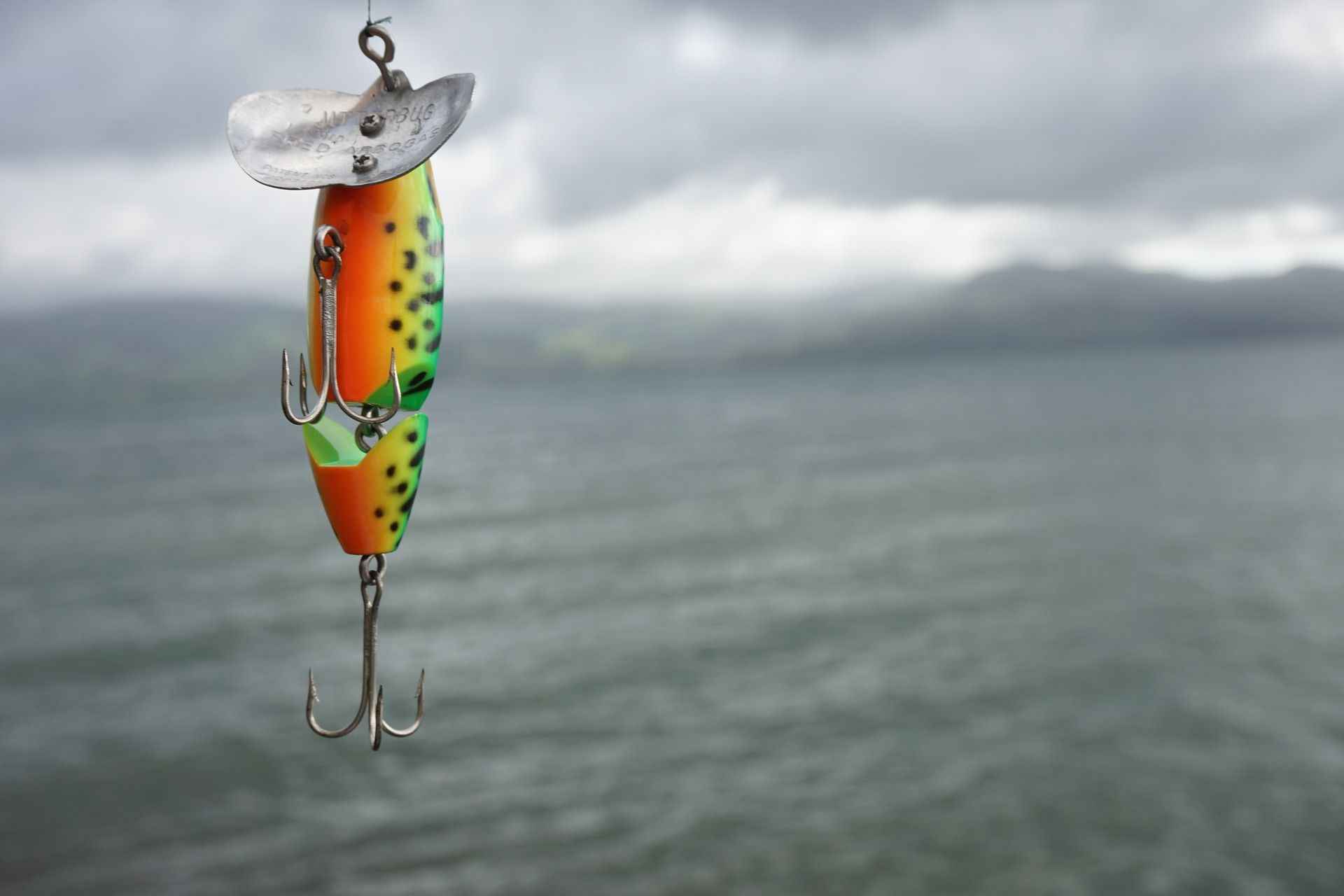
You're Not Catching Anything!
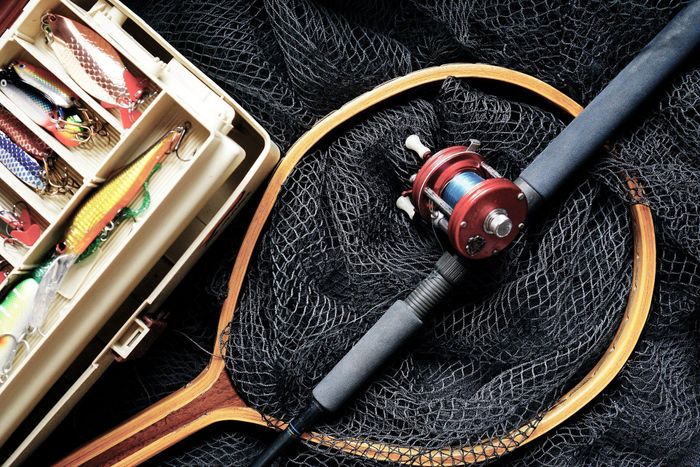
Are you having trouble getting any bites? Is your fishing experience leaving you frustrated and disappointed? Worry not, for we have got you covered! We know that it’s not easy to say that you are having some trouble with getting a bite. Every angler, whether they are just starting or have been angling for years, has experienced doing everything they can, and yet they’re still not getting a bite, so you’re not alone in this.
Here are 9 common reasons as to why you are currently unsuccessful with your current angling and some ways to mitigate them and catching bites once again.

Reason #1: Coming Unprepared For Angling
I know I know, it sounds so stupid, right? Who in their right mind would forget their equipment when going fishing? You’d be surprised as to how easy it is for anglers of all experiences to forget things that they require for their fishing trip. It could be as simple as forgetting to bring extra bait or the proper lure with you, to something as serious as bringing spare fishing lines just in case, or your fishing license in the area that you wish to fish at.
To avoid mishaps like these, be sure to prepare everything you’ll need to have when you go fishing. If it helps, you can make a physical checklist of all the things you need to do and bring for your trip. Ensure that all your equipment is in its proper place, packed, and ready to go in advance of your trip so you won’t lose anything when you are leaving already. Being prepared for any eventuality allows you to have a better fishing experience and catch more fish than you used to.
Reason #2: Fishing In The Wrong Spots
Another common mistake that anglers can fall into is fishing in the wrong spots. Maybe this was the spot they got a good catch early on and they believe that fishing in this spot again will land them the same result, only to be disappointed by lack of bites when they returned there. Or, the spot you chose is where you feel most comfortable, so you choose to stay there instead of moving into a better spot because why struggle or be with other anglers when you have a spot all for yourself right?
The thing is, fish won’t see things the same way you would see them. That spot you like may be comfortable to you, but the fish you’re catching has other ideas. If you’re not catching anything in one spot for half an hour to 45 minutes, maybe it’s wise to move to a different spot. Staying in one spot and hoping fish will pass there would waste your time unless the spot you picked is an already known route for movement of the fish you are hoping to catch so to maximize your chances of getting a bite and time move around the area to see where the fish are located and cast your line there. The saying “90% of the fish are in the 10% of the water” exists for a reason you know.

Reason #3: Not Doing The Necessary Research
Connected to my 1st point, it is said that knowing is half the battle and this applies to fishing as well. For example, you wish to fish for salmon, and you chose to fish in an area that is known to have many of them. You packed your things, gathered all the necessary paperwork for the trip, and went off… only to find out that the Salmon season in that area is not due for another 2 months. You have wasted money, time, and energy on a fruitless endeavor and went home with nothing.
To avoid this and catch the fish you are fishing, one must know everything about it; its habitat, movement, availability at this time of the year, etc. If this sounds difficult, you can start by knowing the local species of fish in the area you wish to fish at and make notes based on what you have learned from them. Other anglers are eager to share their knowledge with others, as long as you inquire politely to them and listen well.
Reason #4: Using The Wrong Baits And Lures
You would notice that the mistakes that I am now listing are connected to earlier points, this is because these things are interconnected, and to make a mistake may lead to another. In this case, you are using the wrong lures and baits to attract fishes. Some of you may have a favorite bait or lure that you consider lucky or has allowed you to catch a particularly large trophy then, but things are sure to be very different now. What worked in the past may not work in the present anymore and being flexible and adaptive is a surefire way to catch more in the future. Always bring a wide assortment of baits and lures so that you can adapt on the fly instead of being caught flat-footed. Proper usage of lures will ensure that your fishing experience will be a fruitful one.
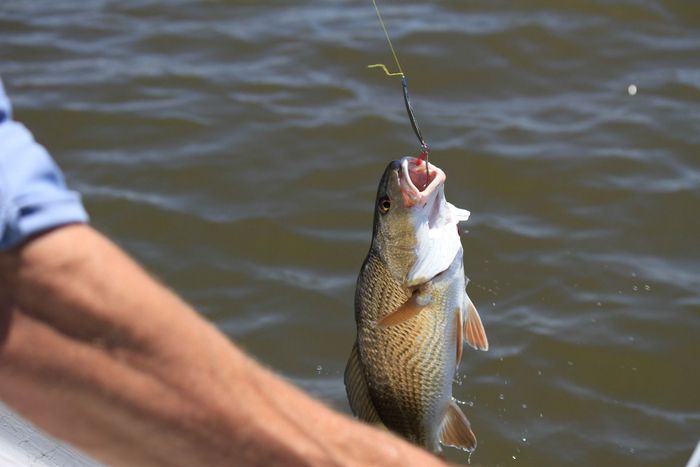
Reason #5: Using The Wrong Colors For Bait and Lure
What is this, even using colors could lead you to not getting any bites? Well yes, this is a legitimate reason as to why you’re not getting bites as well. Fish are pretty smart in their own way, and they can sense if that wiggly thing of a different shade or color is a fish or not. Using the wrong bait colors to attract fish is just asking for disappointment, so you must know what kind of bait and lures work best in the area you are fishing on. By having the proper color of lure to the fish you wish to catch, the chance of you getting a bite just got higher.
Reason #6: Using The Wrong Lure Size
Again, this reason is connected with point number 4. Sure, big fish lures allow you to catch bigger fishes in the area, but not all fish in the area will bite to this kind of bait. So using smaller lures, in this case, is the wiser choice in this case as it will allow you to get more bites than a bigger lure. On the other hand, if you are fishing to catch big fish, then a small lure will do you no good, as bigger fish prefer to catch bigger prey so that they don’t waste too much energy hunting. In this case, you need to use a bigger lure as a smaller one will just catch smaller fish.
Reason # 7: Avoiding Dense Areas
Another mistake that a lot of anglers, mostly the new ones but this also affects the older ones, make is avoiding dense areas with covers such as grass fields, laydowns, and docks. The idea that you don’t want to lose your newly bought or lucky lures and baits as well as snagging your line there puts off anglers from venturing there. But this is a grave mistake, as a lot of fish take cover in these areas specifically because it offers the most protection for them. If you are not fishing in areas with cover or close to one, I’m not really sure what your aim is. Besides, losing baits and lures are part of angling, being too conservative and careful with them then why are you angling in the first place?
Reason #8: You’re Fishing Too Fast
Some of these fish like groupers are known to be opportunistic. Reel it in too fast and they'll bolt! Angling is an activity of patience and perseverance, so being too impatient and moving your bait too fast may prevent the fish from fully seeing it and biting. It is advised to be slow and gently naturally move your bait so that you can properly mimic a normal fish’s movements and attract your target. This is especially true in the winter when fish aren’t as active in the water, so slowing down your retrieval speed is the way to go. But if you’re fishing during summer, where fish are more active, it is better to speed up your retrieval speed.
Reason #9: You Didn’t Take Into Account The Water’s Temperature
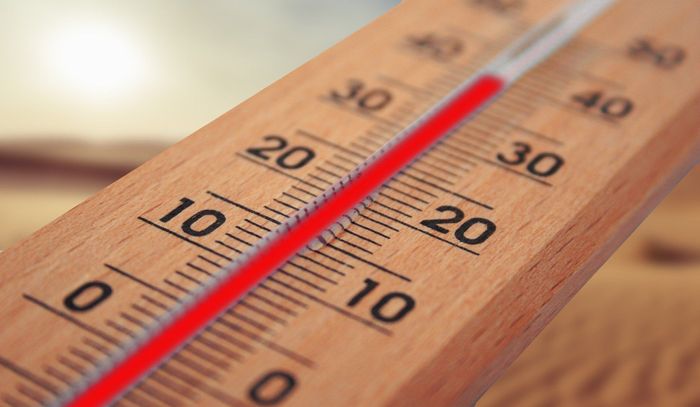
A key thing that some anglers forget is to take into account how warm or cold is the water they are fishing on. Fish are coldblooded animals and are affected by the differences in temperature of the water, so they respond very differently when there is a change of temperature in the area you are fishing on. If the fish are not biting, it may be because the water became too hot or cold for them to properly move around. If this is the case, you can cast your line directly at them and slow your presentation down so that the bait will appear appealing to your target.
But there are some fishes such as the Yellow Perch that are open during cold weather. There's also the Largemouth and Smallmouth Bass though they are more active in warm weather.
Experience is the Best Teacher
Here are just some of the reasons why you are not succeeding in catching fish, but if you truly want to learn how to succeed, you must cast your line again. Of course, doing this again may yield no result, but you wouldn’t know that unless you try right? Angling rewards those who persevere the most and those who are patient and prepared when they cast their lines. Who knows? Maybe the next time you go fishing again, you may catch a massive one when you least expect it.

